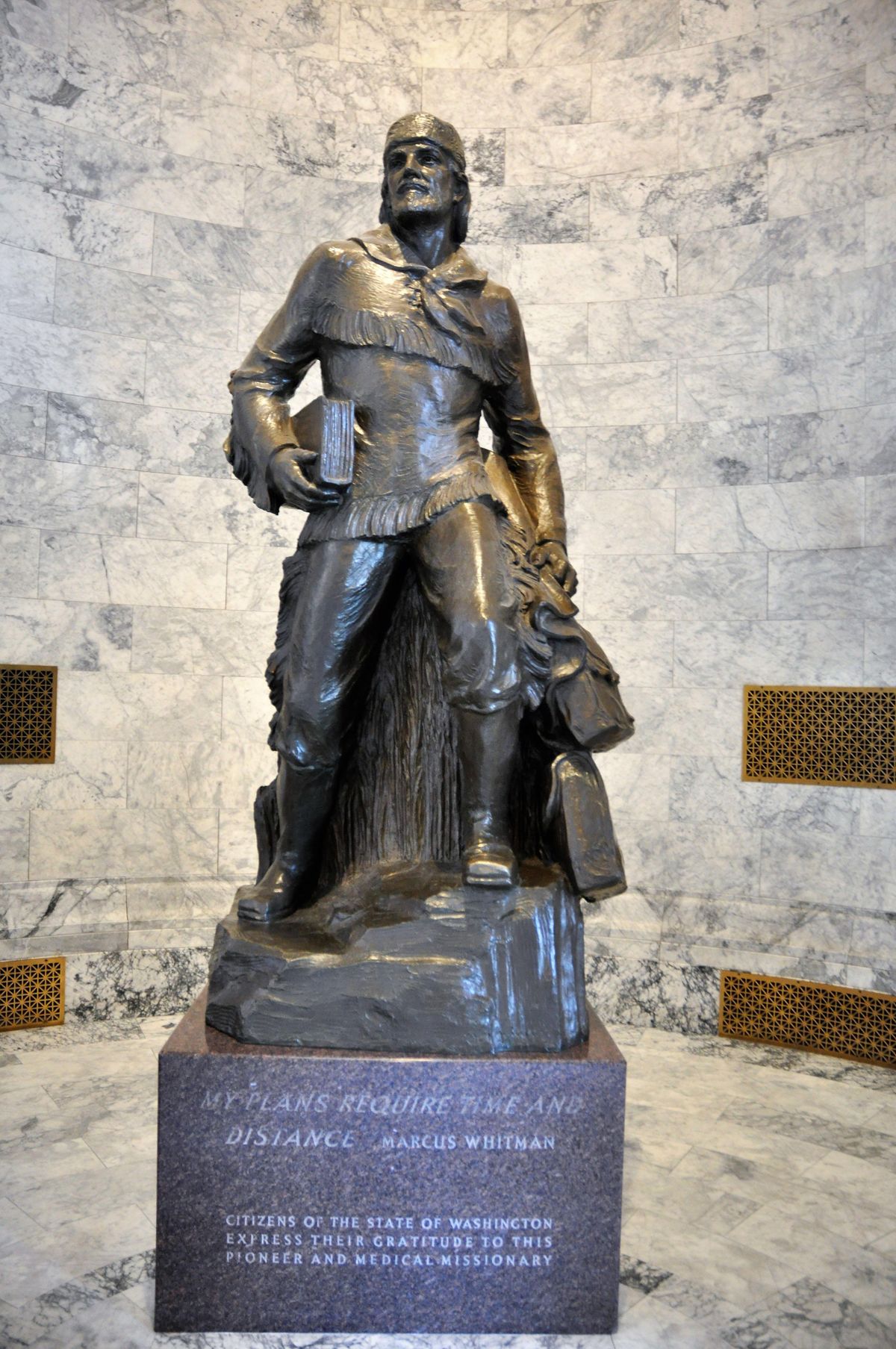Bill suggests replacing Marcus Whitman statue at Capitol

OLYMPIA – Bronze statues of pioneer settler Marcus Whitman won’t be leaving the U.S. or state capitols anytime soon.
A Senate committee signaled Wednesday it was unlikely to pass along a proposal that contends a “rigorous, objective review” would knock him off a list of Washington’s top honorees.
Supporters of Whitman said it’s not fair to judge the 19th century doctor and missionary by today’s standards, and even if one did, he stands up pretty well to some other people who lend their names to the state and its locations.
“Washington was a slave owner,” said Rowland Thompson, a Whitman College graduate and opponent of the proposal to set up a 10-member task force to come up with someone else to occupy one of the two spots Washington gets in the U.S. Capitol’s Statuary Hall, where Whitman has stood for 65 years. “Jefferson was a slave owner.”
So were Meriwether Lewis and Thomas Hart Benton, both of whom have counties in the state named for them, he said. Franklin Roosevelt, whose name is attached to the lake behind Grand Coulee Dam, signed the internment order for Japanese citizens during World War II.
“It was a very different time than we have right now,” Thompson said. “You really need to think this through pretty carefully if you’re going down this road.”
Sen. Reuven Carlyle, D-Seattle, the sponsor of the bill to consider replacing the Whitman statue, said he was merely trying to start a conversation about who should have what some consider the state’s highest honor, a place in Statuary Hall. Each state gets two statues; Washington’s other statue is Mother Joseph of the Sisters of Providence, who built some of the state’s first schools and hospitals. Replicas of both statues are inside the north entrance to the domed Legislative Building in Olympia.
“This is not an implication that he’s a terrible guy,” Carlyle said of Whitman. “I’m simply asking the question.”
Some might even ask, “Who is this guy?” he said.
Marcus Whitman and his wife, Narcissa, were among the first white settlers of what is now Washington state. They established a school mission near what is now Walla Walla. He also helped guide future settlers on the Oregon Trail into the Northwest.
Although he was a doctor and a missionary, the statue depicts him more like Davy Crockett, except that he’s holding books and leather bags rather than a rifle.
Whitman had some land disagreements with the local Cayuse tribe, but also provided some medical treatment to them. In 1847, settlers coming through the area brought measles with them, and the disease spread quickly among the tribe. Many of the Cayuse tribe, including most of their children, died, and when they saw that settlers survived, they blamed Whitman for the deaths. They killed the family and some other residents of the settlements and took some women and children hostage. The dispute grew into what became known as the Cayuse War and prompted Congress to back a U.S. claim to the Oregon Territory.
Washington has grown and changed as a state since 1953, when it selected Whitman for Statuary Hall (Morther Joseph was selected in 1980) and it might be time to have a discussion about “the people who are part of the cultural soul of our state,” Carlyle said. “It doesn’t have to have a negative value judgment.”
At the end of the hearing, Sam Hunt, D-Olympia, Senate State Government Committee chairman, signaled the bill’s fate, telling opponents: “I don’t think you’ll see it moving out of here anytime soon.”
Carlyle wasn’t bothered by the likely death of the proposal: “It’s not really about passing a bill. It’s about starting that civic discussion.”